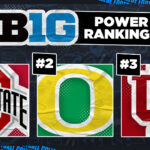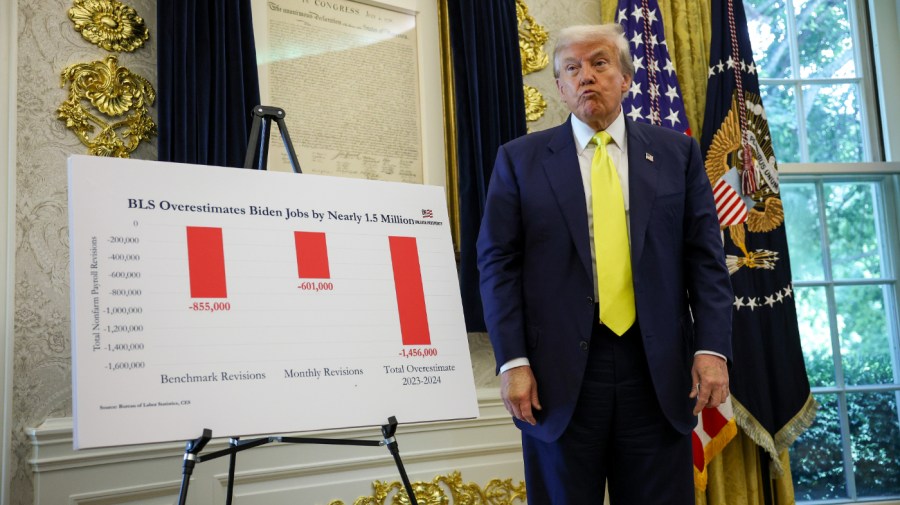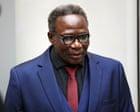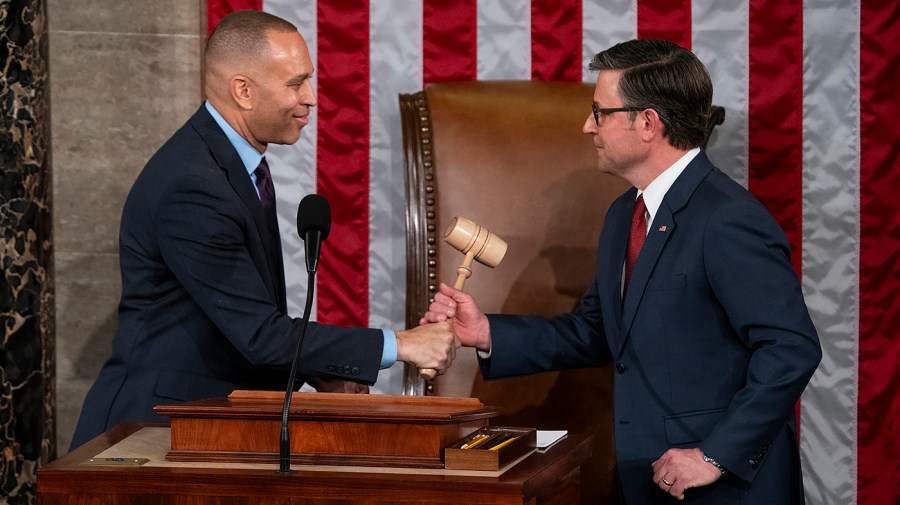President Trump’s nominee to lead the Bureau of Labor Statistics has drawn surprising opposition from conservative economists, and for good reason.
When Trump fired Erika McEntarfer, the former commissioner, he baselessly denounced her for publishing “rigged” job numbers to make him look bad. Her replacement, whom Trump capitalized as “Highly Respected Economist, Dr. E.J. Antoni,” would supposedly “ensure that the Numbers released are HONEST and ACCURATE.”
Don’t count on it.
Almost nobody bought Trump’s claim. Antoni has meager credentials and no relevant experience for leading an agency with over 2,000 employees, responsible for measuring all “labor market activity, working conditions, price changes and productivity in the U.S. economy.”
Antoni is just five years out of graduate school at Northern Illinois University. His only professional jobs have been with right-wing policy shops.
He is currently chief economist at the highly ideological Heritage Foundation, which the Trump administration touted as a major qualification for the Bureau of Labor Statistics position.
Economists from multiple conservative think tanks have weighed in against Antoni’s appointment, citing his inexperience and incompetence.
The American Enterprise Institute’s Stan Veuger warned that Antoni’s work “has frequently included elementary errors or nonsensical choices that all bias his findings in the same partisan direction.” His colleague Derek Scissors was even more dismissive, saying Antoni “writes drivel for political reasons.”
David Herbert, of the American Institute for Economic Research, called for the Senate to reject Antoni’s nomination, citing “his inability to understand basic economics.”
Likewise, Daniel DiMartino of the Manhattan Institute called Antoni “unqualified for the labor market data collection and analysis role” when he doesn’t know what he’s “talking about.” Jessica Riedl, another Manhattan Institute fellow, described Antoni’s publications as “probably the most error-filled of any think tank economist.”
Even the Wall Street Journal editorial board, ordinarily supportive of Trump’s nominees, was skeptical, noting that Antoni’s “commentary at Heritage has been highly partisan,” while the BLS job “demands nonpartisan professionalism.”
Antoni has his defenders, of course, although they are more likely to be political advocates and partisan colleagues than mainstream economists.
In a recent essay for The Hill, Sen. Markwayne Mullen (R-Okla.) blasted the Bureau of Labor Statistics for “lazy, incomplete or misrepresented statistics,” asserting that Antoni will “ensure data is collected, processed and disseminated in the most timely and precise way possible.” Tellingly, Mullen said nothing about Antoni’s qualifications, no doubt because there is so little to say.
Mullen didn’t mention Antoni’s position at the Heritage Foundation. That’s just as well. As I showed in a series of articles several years ago, the Heritage Foundation pushes shoddy, politicized social science.
In late 2021, Heritage published a report on antisemitism among Diversity, Equity and Inclusion personnel at American universities, purporting to reveal that “an overwhelming number of DEI hires are spewing anti-Semitic views about Israel on social media.”
The actual study showed nothing of the sort. The researchers’ flawed method involved reviewing Twitter accounts for 741 DEI employees at 65 universities. They identified 605 negative tweets about Israel, and just 28 favorable or neutral. In contrast, they found only 88 negative tweets about China, with 128 favorable.
From these slight numbers, they declared that “DEI staff are relatively obsessed with Israel,” and claimed to have revealed an antisemitic “double standard” regarding Israel and China. Their figures, however, tell us nothing about the prevalence of anti-Israel sentiment among “DEI staff” because they fail to state the number of individuals making negative tweets. It is possible, indeed likely, that only a few DEI officials were responsible for hundreds of those tweets, whereas most were silent about Israel or China. Despite Heritage’s overheated assertion, the report contains no sound data about DEI officials in general.
I made repeated requests for the relevant numbers, but got no reply. Sharing underlying data is a bedrock principle of legitimate social science, because it is the only way to evaluate the accuracy and reliability of a study’s findings.
An organization that withholds its data cannot be trusted. Nor can it serve as a meaningful credential for its “chief economist.”
Channeling Antoni himself, Mullen’s main gripe about the BLS is that its reports have been “frequently revised,” with employment figures lowered for Trump and, he wrongly claimed, revised upward for President Joe Biden.
Mullen seriously misunderstands complex data collection, in which regular revision is a sign of conscientiousness, not misrepresentation. In the case of BLS, survey responses continue to arrive after the estimated monthly reports, and results are routinely adjusted accordingly.
Antoni and Mullen should heed an admonition often attributed to the great economist John Maynard Keynes: “When the information changes, I alter my conclusions. What do you do?”
Steven Lubet is the Williams Memorial Professor Emeritus at the Northwestern University Pritzker School of Law. He is the author of “Interrogating Ethnography: Why Evidence Matters,” among many other books.














